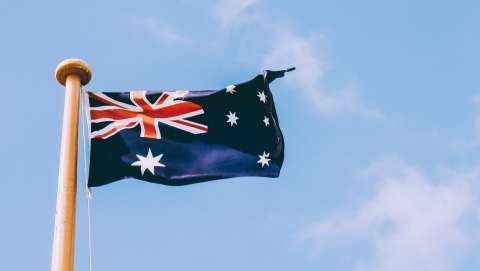Premier Annastacia Palaszczuk today announced a $17 million package to fast track a world-leading vaccine for coronavirus developed in Queensland.
The Premier said the State and Federal Governments were working together with the Paul Ramsay Foundation to support the University of Queensland’s School of Chemistry and Molecular Biosciences who have gained worldwide attention for a promising COVID-19 vaccine.
“This disease has already killed thousands throughout the world. We’re doing everything we can to put an end to the devastation,” the Premier said.
“Finding a fast, safe and effective vaccine to prevent infection from COVID-19 is an urgent public health priority.
“We will provide funding through our Advance Queensland strategy to fast-track a vaccine for this virus.
“I’m glad to say, thanks to 20 years of strategic investment through the Smart State and Advance Queensland initiatives, we are in the position today where we can say that Queensland researchers are on the brink of producing an effective vaccine against this devastating disease.
“Clinical use of the vaccine is a longer-term fix. In the immediate future, Queenslanders should continue to take steps like thoroughly washing their hands, staying 1.5 metres away from others and staying home and isolated if they’re sick.
“Most importantly, listen to authorities and expert medical advice.”
The funding package announced today includes:
- $10 million from the State Government
- $3 million from the Federal Government
- $3.5 million from the Paul Ramsay Foundation
Federal Minister for Health Greg Hunt said Australia has produced some of the world’s best medical research.
“This is another example of us contributing to address important health challenges for Australians and for the global population.”
“Research plays a critical role in ensuring Australia maintains its world-class health system and is particularly important as the world responds to COVID-19.”
Innovation Minister Kate Jones said the funding announced today would enable UQ along with research partners – the Doherty Institute and CSIRO – to undertake clinical trials to test the safety and efficacy of the vaccine candidate.
Ms Jones said it would also enable the large-scale manufacture of a potential vaccine if successful.
“This vaccine could save millions of lives,” she said.
“The research UQ is doing now is putting Queensland on the map.
“If we can be part of the solution, this research will help Queensland tap into a multi-trillion-dollar industry.”
Ms Jones said this could reduce by six months the timeline for an effective vaccine, which would otherwise take 12 to 18 months at the earliest.
“If they can achieve this, it could mean there will be a vaccine available for emergency use among healthcare workers and vulnerable populations in early 2021,” she said.
Paul Ramsay Foundation CEO Professor Glyn Davis AC said the Foundation was pleased to be involved in funding the University of Queensland’s vaccine research.
“We are all in this together and it is our collective responsibility to contribute as best we can to get through this difficult period,” Professor Davis said.
The University of Queensland is the only Australian organisation and one of only six globally to be tasked by the Oslo-based Coalition for Epidemic Preparedness Innovations (CEPI) to develop a vaccine against the novel coronavirus.
Dr Keith Chappell said by running the vaccine manufacture and clinical trials in parallel, it meant the moment they had success in the clinic, doses would be ready to go.
“Today’s announcement means we can act now – to make sure that we can roll out a safe and effective vaccine as quickly as we can to protect vulnerable people including the elderly and healthcare workers,” Dr Chappell said.
“The containment procedures being put in place within Australia and internationally will slow the spread of the virus. We want to use that time as effectively as possible. If we can scale up manufacture at the same time as testing safety and efficacy, we might well prevent future escalations.”






